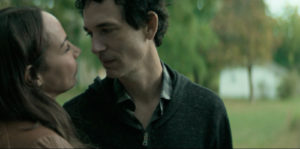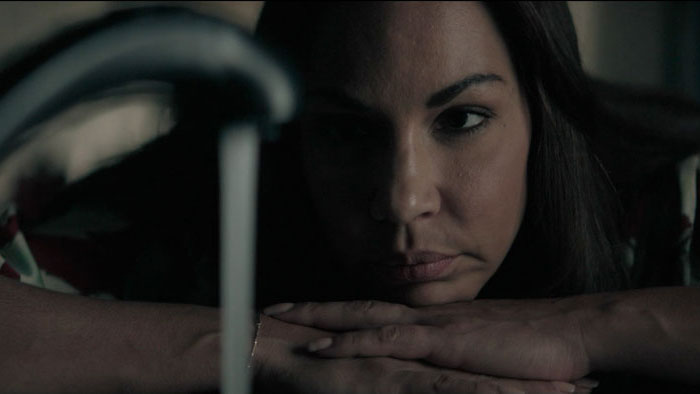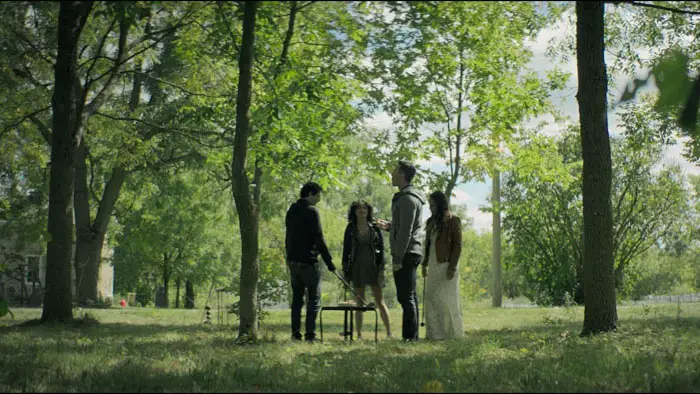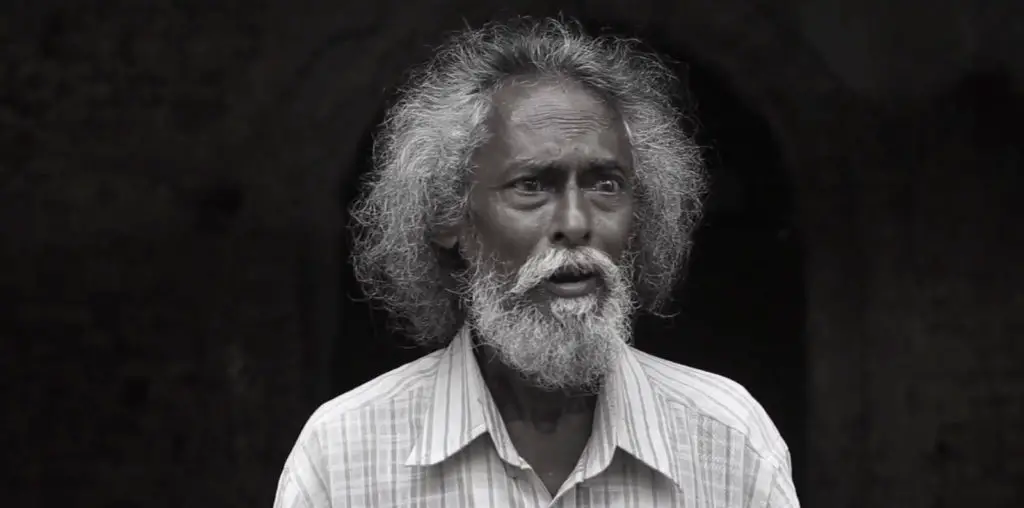
The past few years in this interminable pandemic have provided us with a never-ending wellspring of ideas from which to craft a narrative. We saw how the world collectively reacts to a crisis that ignores national boundaries. Filmmakers can freely take the wheel from there with endless variables as to what would cause a global panic and craft a narrative from there. Whether they should or not is another story. Nobody wants to capitalize on a generally terrible time, but the life-altering scale of the pandemic is bound to find its way into a plethora of stories.
In writer-director Jeremy LaLonde’s Ashgrove, the source of the worldwide crisis is particularly cynical in nature: water. The sustaining lifeblood of every human on the planet has become toxic in high doses. This forces populations to carefully measure the amount of water they need to intake for basic survival without imbibing on too great an amount to induce a poisoning of one’s body and mind. What a conundrum!
Enter Jennifer (Amanda Brugel), a brilliant scientist tirelessly working on a solution to the crisis. Befitting the importance of her work, she has had little time to nurture her marriage to Jason (Jonas Chernick). Jason is a generally supportive partner though he is nevertheless hiding a dark secret with their mutual friend Sammy (Natalie Brown). Jennifer is on the cusp of a breakthrough in her research but is careening towards a mental breakdown due to being overworked. Subsequently, she’s ordered by her boss to take a leisurely holiday to the titular farm with Jason. A vacation is an investment in future productivity, right?

“Jennifer is on the cusp of a breakthrough in her research but is careening towards a mental breakdown…”
From here, Ashgrove largely becomes a relationship drama, even if we’re given occasional reminders of the crisis through exchanges involving the volumes of their water intake. It almost seems as if the impending doom of a poisoning of our most precious resource becomes a bit of an afterthought in the larger narrative. However, the film comes back full circle in the closing segments.
The best sequences of LaLonde’s film involve Jennifer and Jason’s disintegrating relationship. This does have the effect of making one question if the overall pandemic-inspired narrative is necessary. It’s an undeniably fresh approach and gives a plausible enough motivation for the characters to work on their relationship, which turned out to be the true challenge for many in the pandemic and is definitely the focus in Ashgrove. But the film feels disjointed when it tries to reconcile an intense relationship within the larger world-on-fire storyline.
Purity in genre is essential in most cases and almost always in films with modest resources. Brugel and Chernick give stellar performances, but I was left wishing LaLonde and company chose a more decisive direction. The film should either be an intense relationship drama anchored by the aforementioned actors or an original, apocalyptic science fiction tale revolving around a basic necessity. In ninety minutes, it’s really hard to do both. But if one is parched for a small-scale relationship drama with an underpinning of existential dread, one could do far worse than Ashgrove.

"…Brugel and Chernick give stellar performances..."


